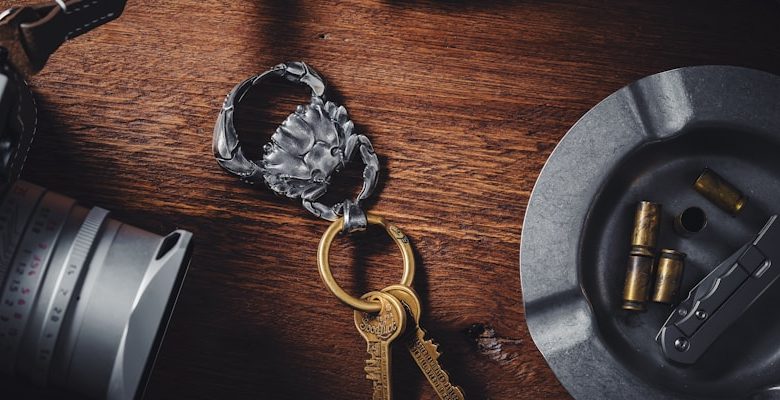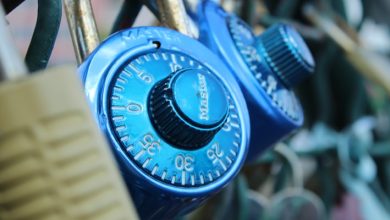The Importance of Private Keys and How to Protect Them

- Understanding the significance of private keys in digital security
- Why private keys are essential for safeguarding your digital assets
- Best practices for securely storing and managing your private keys
- How to create strong and unique private keys for enhanced protection
- The risks of losing or exposing your private keys
- Protecting your private keys from potential threats and attacks
Understanding the significance of private keys in digital security
Private keys play a crucial role in digital security by acting as a unique identifier for individuals or entities in the online world. These keys are used to encrypt and decrypt sensitive information, such as passwords, financial data, and personal messages, ensuring that only authorized parties can access this information.
Understanding the significance of private keys is essential for safeguarding your online identity and protecting your data from cyber threats. Without a secure private key, your information could be vulnerable to hackers and other malicious actors who may attempt to intercept or manipulate it for their gain.
It is important to keep your private key confidential and secure to prevent unauthorized access to your sensitive information. By following best practices for storing and managing your private key, such as using encryption tools and secure password practices, you can minimize the risk of a security breach and protect your online assets.
Why private keys are essential for safeguarding your digital assets
Private keys are a crucial component in safeguarding your digital assets. They act as a secure way to access and manage your cryptocurrencies and other digital possessions. Without private keys, you risk losing control and ownership of your assets, leaving them vulnerable to theft or hacking.
Private keys are essentially long strings of randomly generated characters that serve as a password to your digital wallet. They are unique to you and should be kept confidential at all times. Think of your private key as the key to a safe deposit box – if you lose it or it falls into the wrong hands, your assets could be compromised.
When it comes to protecting your private keys, there are a few key strategies to keep in mind. Firstly, never share your private key with anyone else. This includes friends, family, or even trusted individuals. Additionally, consider storing your private key in a secure location, such as a hardware wallet or encrypted USB drive. Avoid storing it on your computer or online, as these methods are more susceptible to hacking.
By understanding the importance of private keys and taking the necessary precautions to protect them, you can ensure the security and integrity of your digital assets. Remember, your private key is your digital identity – guard it with care.
Best practices for securely storing and managing your private keys
When it comes to securely storing and managing your private keys, there are several best practices that you should follow to ensure the safety and security of your sensitive information. One of the most important things to keep in mind is to never store your private keys on a device that is connected to the internet. This will help to minimize the risk of your keys being stolen by hackers or malicious software.
Additionally, it is recommended that you use a hardware wallet to store your private keys securely. Hardware wallets are physical devices that store your keys offline, making them much more difficult for hackers to access. By using a hardware wallet, you can add an extra layer of security to your private keys and protect them from potential threats.
Another important best practice for securely storing and managing your private keys is to regularly back them up. By creating multiple backups of your keys and storing them in different secure locations, you can ensure that you will not lose access to your funds if your primary storage method fails.
It is also important to use strong encryption when storing your private keys. By encrypting your keys with a strong password, you can make it much more difficult for unauthorized users to access your sensitive information. Be sure to use a unique and complex password that is not easily guessable.
Lastly, it is crucial to never share your private keys with anyone else. Your private keys are the only thing standing between your funds and potential thieves, so it is important to keep them confidential at all times. By following these best practices, you can help to protect your private keys and keep your assets safe and secure.
How to create strong and unique private keys for enhanced protection
To create strong and unique private keys for enhanced protection, it is important to follow some best practices. One way to do this is by using a combination of random numbers, letters, and special characters to generate a complex key. Avoid using easily guessable information such as birthdays, names, or common phrases.
Another tip is to make sure the private key is long enough to provide sufficient security. A longer key will be harder to crack through brute force attacks. Aim for a key length of at least 12 characters, but longer is generally better.
Additionally, consider using a passphrase along with your private key for added security. This passphrase should also be unique and not easily guessable. Remember to store your private key and passphrase in a secure location, such as a password manager or encrypted file.
The risks of losing or exposing your private keys
It is crucial to understand the risks associated with losing or exposing your private keys. When you lose your private keys, you essentially lose access to your digital assets, whether it be cryptocurrencies, sensitive information, or other valuable data. This can result in irreversible consequences and financial loss.
Exposing your private keys to unauthorized individuals can lead to theft, fraud, and other malicious activities. Hackers can easily gain access to your accounts and manipulate your assets if they get a hold of your private keys. It is essential to keep your private keys secure and confidential to prevent any unauthorized access.
Once your private keys are compromised, there is no way to retrieve them. It is crucial to take proactive measures to protect your private keys and ensure the security of your digital assets. By following best practices for storing and securing your private keys, you can mitigate the risks of losing or exposing them.
Protecting your private keys from potential threats and attacks
Protecting your private keys is crucial to safeguarding your digital assets from potential threats and attacks. There are several measures you can take to enhance the security of your private keys:
- Use a reliable and secure wallet to store your private keys. Choose a wallet that offers advanced encryption and security features to prevent unauthorized access.
- Avoid sharing your private keys with anyone else. Keep them confidential and never disclose them to anyone, including friends or family members.
- Consider using a hardware wallet for an extra layer of security. Hardware wallets are physical devices that store your private keys offline, making them less vulnerable to online threats.
- Enable two-factor authentication (2FA) for added protection. 2FA requires you to provide two forms of verification before accessing your private keys, making it harder for hackers to breach your security.
- Regularly backup your private keys and store them in a safe place. In case your device is lost or compromised, having a backup will allow you to recover your keys and access your assets.



